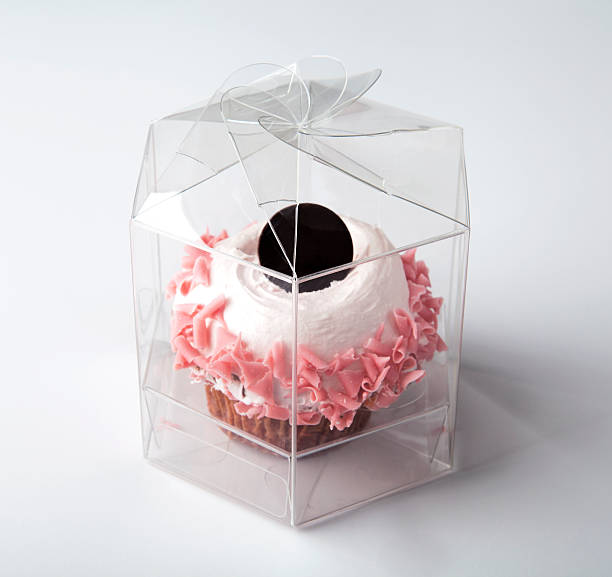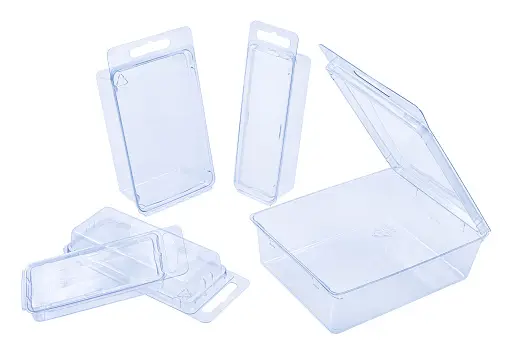Characteristic Features Of PVC Boxes That Make Them Excellent For Packaging
Retail product packaging should be eye-catching, durable, high-quality, and dependable. But it would help if you also weighed the financial costs, the benefits, and also the impact on the environment. So choosing the right packaging for your products involves considering many factors. Clear PVC boxes are one of the best options for retail packaging, preferred by retailers worldwide. So If you plan to order PVC boxes for packing your products, here are some characteristic features of PVC boxes that you should know about.
Durable
PVC plastic boxes are extremely durable, like many other plastics. But its high impact tolerance and superior reliability with respect to barrier packaging are unmatched by different types of plastic boxes. It is also preferred over PET packaging when product visibility is desired, especially if stored in a fridge or on ice. The major reason for this is that PVC can maintain greater flexibility and is also less brittle than PET packaging.
Secure Packaging
If you are looking for a secure packaging option, then order PVC boxes wholesale, as these will be perfect for situations in which you want to weld the package closed. You can get a clear PVC box or a PVC clamshell for this purpose. The material allows two package panels to be welded together by radio frequency. This requires the consumer or potential shoplifter to cut the package open to access the product.

Versatile Material
PVC is a very versatile and customizable material for packaging. It can be used to create clamshells and other boxes in various shapes and sizes, including eye-catching colors and designs that can be printed directly on the PVC package. Many brands use PVC for their folding boxes or clear lid boxes rather than PET boxes since the former can be ingrained during the die-cutting stage for creating a subtle, 3-D logo or image on the box.
Environment
The recycle symbol scale places PVC plastic packaging in the number 3 position, which means that it is recyclable if the proper facilities exist. Even a small amount of PVC plastic can be recycled into various products like mats, flooring, speed bumps, etc. However, it is a small percentage when compared to recycled PET plastic.
Other Factors
Clear PVC boxes are lightweight but durable and have a better shelf-life. It also allows easy packaging molding to fit the product, and the durability safeguards the items wrapped inside. Custom packaging is extremely important for some businesses. PVC is the best option for them.
More About PVC Plastic
PVC is a thermoplastic material consisting of Polyvinyl chloride resin compounded by appropriate proportions of lubricants, stabilizers, pigments, fillers, processing aids, and plasticizers. Various compounds of these elements have been developed to achieve specific properties required for different applications. But the major ingredient is the PVC resin.
PVC plastic that contains no plasticizer and minimum compounding of ingredients is the one that has the greatest long-term and short-term strengths. This is known as PVC-U. When other resins or modifiers are added to PVC-U, it produces compounds with improved impact resistance, and such compounds are known as PVC-M or modified PVC. You can also find plasticized or flexible PVC compounds, which are produced by adding plasticizers. CPVC or chlorinated PVC is also available, with higher chlorine content. Another type of PVC material is the PVC-O or oriented PVC, which has its molecules preferentially aligned in a particular direction.
Comparing The Different Types Of PVC Materials
PVC-U and PVC-O are identical in composition as well as general properties. But the major difference is the mechanical properties in the direction of orientation. PVC-M differs from these two due to the addition of an impact modifier which causes the properties to deviate from PVC-U, depending on the amount and type of modifier used.
- Tensile strength: PVC-O has a tensile strength that is twice that of PVC-U. In comparison, PVC-M has a tensile strength that is still lower than PVC-U.
- Toughness: PVC-M and PVC-O behave in a ductile manner under all circumstances. But in the presence of a notch or flaw, under some adverse conditions, PVC-U tends to exhibit brittle characteristics.
- Safety factors: PVC-M and PVC-O are said to allow a lower factor of safety to be used in the design.
- Design Stress: PVC-M and OVC-O can operate under higher design stress than PVC-U.
- Elasticity: the highest modulus of elasticity is shown by PVC-O, followed by PVC-U. PVC-M has an elasticity lower than that of PVC-U.
- Impact Resistance: PVC-M exhibits higher impact resistance than PVC-U. However, there are no significant differences in the weathering characteristics of the three PVC compounds.
To Conclude
PVC plastic also shows excellent electrical properties, durability, flame retardancy, cost-to-performance ratio, mechanical properties, and chemical resistance. This makes it suitable for such a wide range of applications, including packaging various products, including food items.
